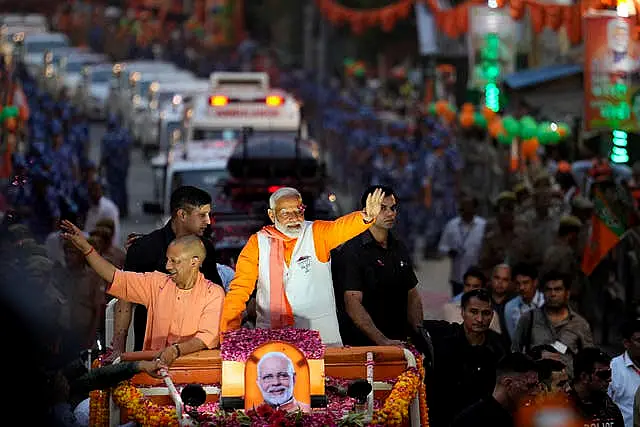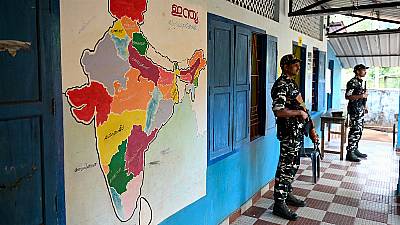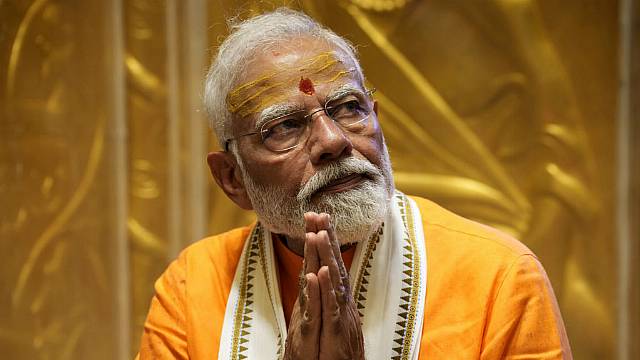Indian prime minister Narendra Modi has filed his nomination to run for a third term in India’s general election in the northern city of Varanasi.
Mr Modi hopes to retain his seat in the holy Hindu city, his constituency, where he ran and won, first in 2014 and then again in 2019.
India’s gigantic, six-week-long general election began in April, with voting set to go on until June 1 before votes are counted on June 4.

Nearly 970 million people are eligible to vote, making it the world’s largest democratic election.
Most polls show Mr Modi and his Hindu nationalist Bharatiya Janata Party are leading in the race for seats in the lower house of parliament over their main challenger, a broad opposition alliance led by the Indian National Congress and powerful regional parties.
The alliance has not yet announced its candidate for prime minister.
Mr Modi is considered a champion of the country’s Hindu majority, who make up 80 per cent of India’s 1.4 billion population.
He has overseen rapid economic growth during his 10 years in power and his supporters credit him with improving India’s global standing.
But critics say he’s also undermined India’s democracy and its status as a secular nation with attacks by Hindu nationalists against the country’s minorities, and a shrinking space for dissent and free media.

His political opponents have raised questions over his government’s economic record, pointing to high unemployment and inflation despite strong growth.
Ahead of filing his nomination, Mr Modi led a roadshow in the city on Monday, drawing thousands of supporters.
They cheered “Hail Modi!” as his car made its way through the streets, where BJP supporters wearing saffron caps and waving party flags greeted him.
Rose petals rained down on the prime minister as he smiled at the crowds.
Some onlookers were perched atop buildings to catch a glimpse of the procession.
The constituency of Varanasi, with around 1.7 million voters, will go to the polls on June 1.
Mr Modi, who is expected to hold on to his seat, is up against Ajai Rai, who is representing the regional Samajwadi Party, which is in alliance with the opposition Congress party in the state.

Also in the fray is Athar Jamal Lari from the Bahujan Samaj Party.
The holy city is located on the banks of the revered Ganges River and is part of Uttar Pradesh state, India’s most populous, with around 200 million people.
It is an especially crucial state in Indian elections as it sends the largest number of MPs to parliament, and has voted for Modi’s BJP in the last two elections.







